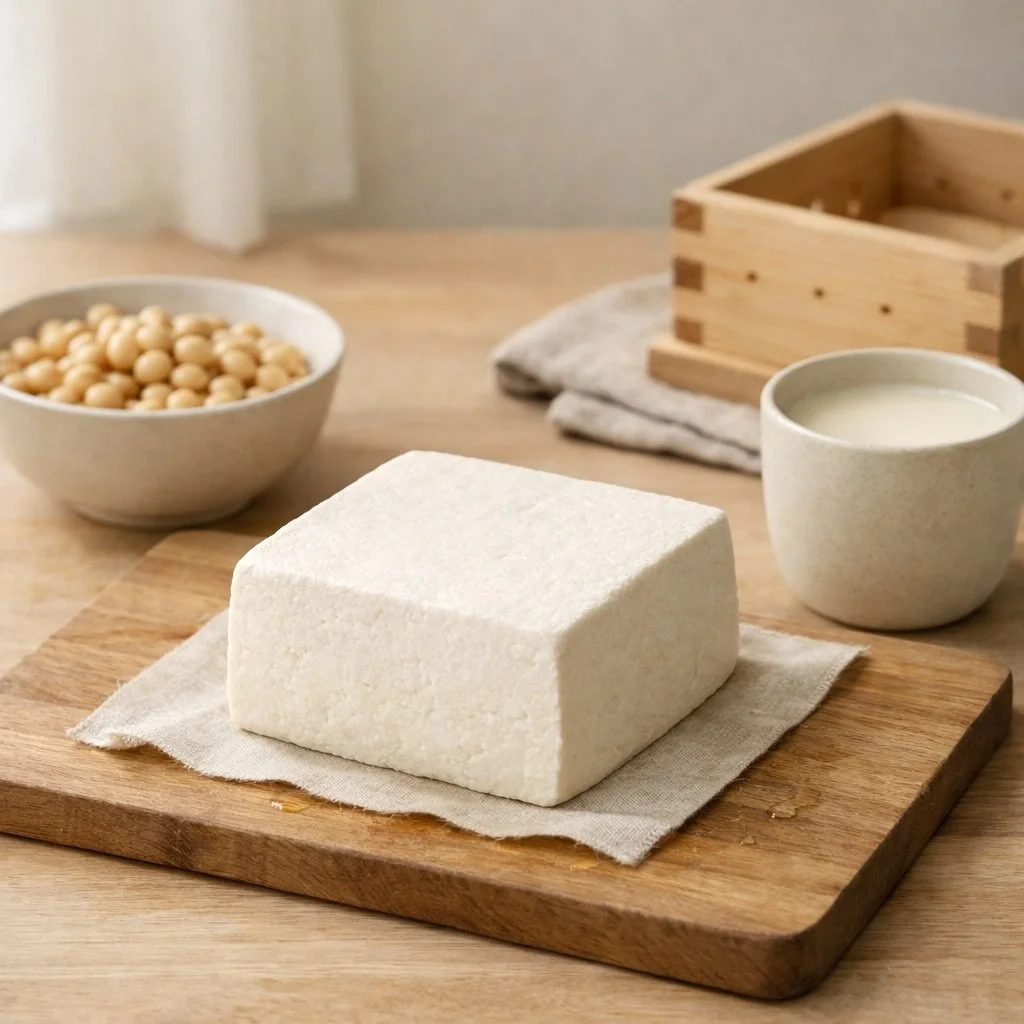Tofu-tastic! A Step-by-Step Guide to Making Tofu at Home
Making Tofu Is Simpler Than It Looks
Tofu often feels industrial or intimidating, but at its core, it’s deeply human. For centuries, tofu has been made with basic tools and careful attention — not machines, additives, or shortcuts.
When you make tofu yourself, you stop thinking of it as a product and start seeing it as what it truly is:
a softly set protein gel, shaped by heat, minerals, and restraint.
You don’t need to make tofu every week. Making it once is enough to change how you cook it forever.
What You’ll Need
Just a few honest ingredients and tools:
Dried soybeans
Fresh water
A coagulant
Calcium sulfate (gypsum) or nigari for smooth tofu
Lemon juice or vinegar for a more rustic texture
A clean cloth (muslin or tea towel)
A tofu mould or a small container with drainage holes
That’s all. No stabilisers. No emulsifiers. Just the fundamentals.
Step 1: Soak the Soybeans
Rinse the soybeans and soak them in plenty of water for 8–12 hours.
They should fully hydrate, soften, and expand. This step matters more than it seems — proper hydration allows the soy proteins to extract evenly and produce smooth, balanced soy milk later on.
Think of this as preparation, not waiting.
Step 2: Blend and Strain the Soy Milk
Drain the soaked beans and blend them with fresh water until completely smooth.
Strain the mixture through your cloth into a large pot. What flows through is raw soy milk. What remains is okara — nutritious soy pulp that can be used in baking or savoury dishes.
At this stage, everything is still liquid. The transformation hasn’t started yet.
Step 3: Cook the Soy Milk Thoroughly
Place the strained soy milk over medium heat.
Bring it to a gentle boil
Stir regularly to prevent sticking
Maintain a steady simmer for at least 20 minutes
This step is essential. Heat denatures the soy proteins and deactivates naturally occurring compounds in raw soybeans. Proper cooking ensures the milk is both safe and ready to set cleanly.
Take your time here. Calm heat creates calm tofu.
Step 4: Coagulate the Milk
Turn off the heat and let the milk settle briefly.
Dissolve your coagulant in warm water, then gently stir it into the soy milk once or twice. Stop stirring. Cover and let it rest for 10–15 minutes.
Slowly, softly, the milk separates:
White curds rise and gather
Pale yellow whey settles beneath
This is the heart of tofu making — proteins linking together into a delicate structure. Nothing needs to be rushed.
Step 5: Ladle and Shape
Line your mould with cloth and gently ladle in the curds.
How much pressure you apply defines the tofu:
Very light pressing: soft tofu
Moderate pressing: firm tofu
Longer, heavier pressing: extra-firm tofu
Pressing doesn’t “improve” tofu — it simply changes its personality. There is no correct firmness, only intention.
(True silken tofu follows a different method, where the milk sets directly in its container without separating curds and whey.)
Step 6: Cool and Store
Once pressed, transfer the tofu into cold water and let it cool completely.
Store submerged in clean water
Refrigerate below 4 °C
Change the water daily
Use within 2–3 days
Fresh tofu is delicate, lightly sweet, and alive with possibility. Treat it gently.
Common First-Time Adjustments
Grainy texture: often from acid coagulants or too much agitation
Too soft: lighter pressing or less coagulant
Too firm: extended pressing or excess weight
Tofu responds best to restraint. Less force, fewer movements, better results.
Why Making Tofu Matters 🌱
Making tofu at home isn’t about self-sufficiency or perfection. It’s about understanding.
When you see soybeans turn into milk, then curds, then a quiet white block, you realise tofu was never meant to imitate anything else. It has its own logic, history, and rhythm.
And once you understand that, every store-bought block becomes more interesting — not less.
Final Takeaway
Tofu is not bland.
It is not boring.
And it is certainly not accidental.
It is the result of gentle chemistry, patient heat, and thoughtful hands. Whether you make tofu once or a hundred times, the act itself invites you to slow down — and to cook with a little more care.
Welcome to Tofu World. This is where the journey begins. 🌱✨

